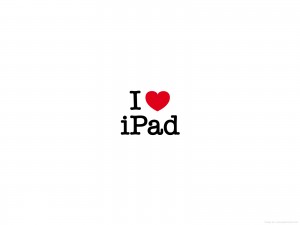It is no surprise that The Chicago Tribune has chosen to endorse President Barack Obama in the upcoming election—he is, after all, a Chicago native who was dubbed “Chicago’s favorite son” in 2008 during his race against Senator John McCain. Any Chicagoan, myself included, remembers watching Obama stand in Grant Park in front of dozens of American flags and thousands of cheering Americans the night he won his election and became the first African American president in history. His campaign for hope and change, combined with the feeling that we were literally witnessing history being made, created an electric energy that moved our city. This is a city that loves Obama. Surprisingly though, the article remains evenly partisan and refrains from endorsing and praising the President blindly. The Tribune offers strong reasoning for backing up Obama, but reminds the reader that there are certain areas in which Romney stands above Obama and thematically reminds the reader that bipartisan agreement is crucial if American’s want to see progress made in fighting the ever-growing deficit these next four years.
This is a city that has proudly watched him take on the challenges that awaited him when he took office—a failing economy, the housing and auto industries on the brink of collapse, and a limited number of jobs available. He has taken on these issues and made progress; despite the long road ahead, the Tribune credits Obama with maintaining pragmatism consistently throughout the campaign. The Tribune went onto backup their somewhat predictable endorsement, saying Obama has led our country by acting with “decisiveness and intellectual rigor,” that they saw in him four years ago. The Tribune use his track record—impressive handling of world affairs, some tax cuts, and passing a revolutionary health care plan for all Americans. But they also acknowledge his many shortcomings as president, including his failure to decrease the out-of-control deficit and instead doubling it during his term. They end with a plea to whoever shall take their spot in the White House this January: to face the deficit head on and do anything possible to reduce it, for it is the future generation who will condemn their fathers if they are left to clean up the mess left by politicians who have the power and awareness to do something now. By intellectually establishing the issues, and acknowledging the failings of Obama, The Chicago Tribune provides a strong, well thought out case for their endorsement of the President, even though we all saw that one coming.
What is surprising, however, is that good old Barack has not succeeded in maintaining the support of everyone in his hometown. The Dailey Herald, an independent suburban Chicago newspaper, recently announced their endorsement for Governor Romney. One city; two candidates; each of them gaining popularity among the Chicagoans. The newspaper cited loss of hope as their reasoning for changing their democratic endorsement in 2008 to supporting the republicans in 2012. However, the article fails to go into the issues. Instead, they give a bleak overview of politics today, writing, “Today, our country is still polarized, our politics is still partisan, our economy slugs along painfully on one of the slowest recoveries in history and the country’s debt threatens our future and the future of our children.” Although the newspaper acknowledges that Obama does not deserve all of the fault for the issues facing our country today, they place a lot of the burden on his shoulders. Addressing why they chose to support of Romney, they argue that Obama has failed to characterize the different classes in America and address them fairly during his time in office. Thus, they have turned to Romney, who has promised to provide jobs through businesses, not government, and successfully work across the aisle to create bipartisan solutions for the problems facing America today. To work together for the common good, the newspaper argues, is the most important thing. Interestingly, The Dailey Herald fails to go into many specifics, rather settling for vague claims about the candidate’s record in handling issues and overall philosophies. Without the concrete reasoning for their support of Romney, the endorsement comes off as more of a political move than a well thought out decision.
Using publications from a candidate’s hometown usually fails to provide an unbiased decision for their endorsement, so it is refreshing to see The Chicago Tribune offering strong reasoning behind their decision to support their hometown hero. Interestingly, this reasoning was even stronger than that provided by The Dailey Herold, who used ideas rather than facts and events to maintain their surprising claim that Romney should take over the White House in January. Although Illinois is one of the most decided states in this election, these articles would be extremely useful for an Illinois native to take a look at so they can ensure that they are voting for their candidate for the right reasons, and not just because he came from their city.
Sources:
http://articles.chicagotribune.com/2012-10-26/news/chi-obama-endorsement-chicago-tribune-20121026_1_president-obama-barack-obama-tax-cuts
http://www.dailyherald.com/article/20121028/discuss/710289939/











